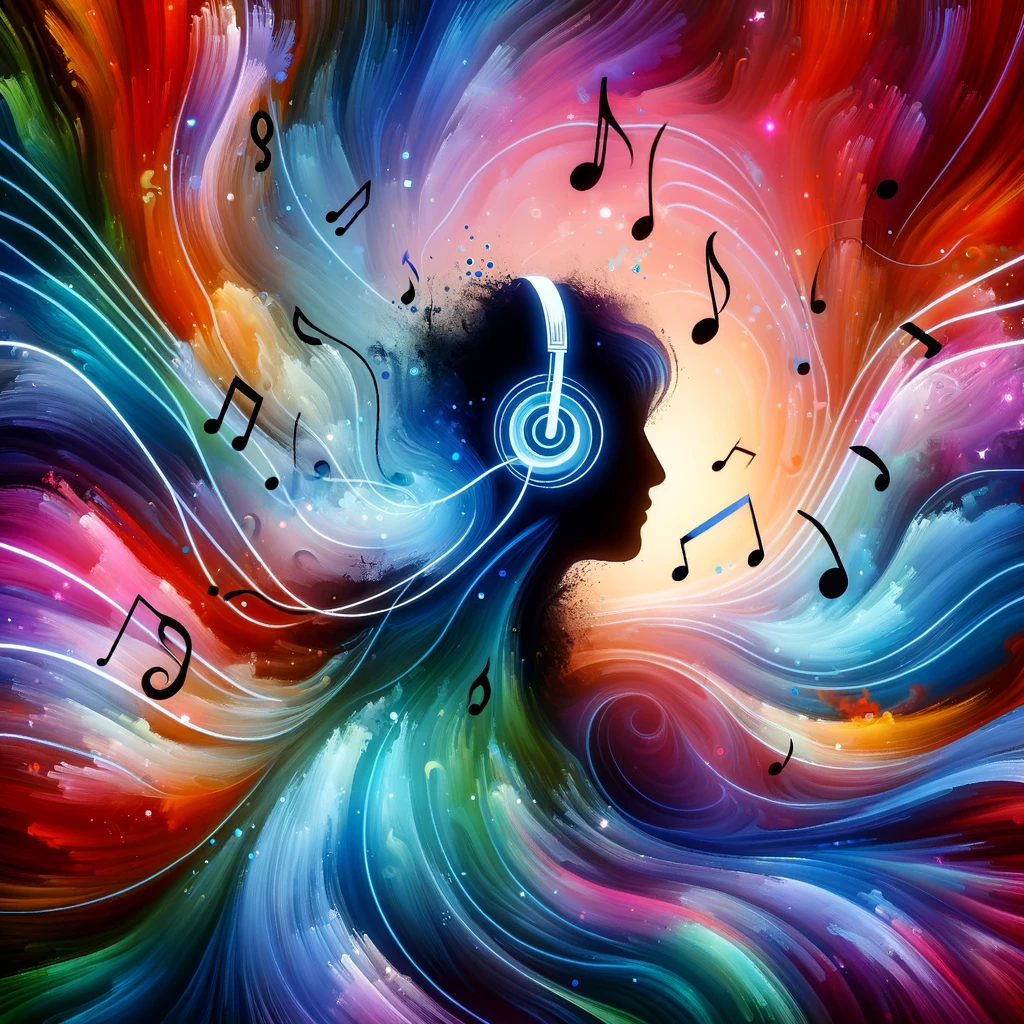Introduction

Welcome to our exploration of the profound impact that music can have on our emotions. Today, we delve into the hip-hop track “Ventilate,” a song that not only entertains but also serves as a therapeutic tool for listeners. Hip-hop has long been a medium through which artists express their deepest feelings and societal concerns, often providing a voice to the voiceless. “Ventilate” continues this tradition, offering us a window into the artist’s process of emotional healing and self-discovery.
At its core, “Ventilate” is more than just a song; it’s a musical journey that invites us to meditate, process our feelings, and find a semblance of peace in the chaos of daily life. As we unpack the lyrics and beats of this powerful track, we’ll see how it encapsulates the therapeutic power of music—turning the act of listening into a form of emotional catharsis.
So, let’s tune in and explore how “Ventilate” uses the dynamic and expressive power of hip-hop to help us all find a little more clarity and calm in our lives.
Hip-Hop as a Medium for Emotional Expression

Hip-hop has long been a vibrant platform for self-expression, a space where artists transform their emotions and experiences into compelling stories and powerful beats. This genre has historically given a voice to those who might otherwise remain unheard, addressing social injustices, personal battles, and the raw complexities of human emotion.
“Hip-Hop as a Medium for Emotional Expression” isn’t just about rhythm and rhymes; it’s about the powerful dialogue between an artist and the world. It’s a form of musical catharsis that helps both the creator and the listener process complex feelings that might be difficult to articulate in any other form.
| Aspect | Description |
|---|---|
| Storytelling | Hip-hop artists use their lyrics to tell stories, often drawing from personal experiences that resonate with their audience. |
| Community Reflection | It often reflects the collective emotions of a community, acting as a mirror to societal issues and triumphs. |
| Emotional Release | For many, writing and performing hip-hop is a form of emotional release, providing a way to deal with anger, frustration, joy, and sorrow. |
In “Ventilate,” these elements come together in a profound synthesis of beats and words. The song isn’t just heard; it’s felt. It peels back layers of emotion with each verse, offering a raw and unfiltered look into the artist’s soul. As listeners, we’re invited to navigate our own feelings alongside the music, finding solace in the shared human experience.
Lyric Analysis

Diving into the lyrics of “Ventilate,” we find a rich tapestry of words that paint a vivid picture of the artist’s emotional landscape. Let’s break down some key lines to understand how they contribute to the song’s therapeutic effect.
The song opens with a poignant line: “I need to meditate, process my feelings and ventilate.” Right off the bat, the artist sets a tone of introspection and healing, using the act of ‘ventilating’—a metaphor for airing out one’s emotions—as a crucial part of his coping mechanism.
| Lyric | Analysis |
|---|---|
| “I need a moment of silent, swear I don’t want get violent” | The artist expresses a desire for peace, hinting at internal struggles and the effort it takes to maintain calm. |
| “Smoke and don’t know where my mind went” | This line captures a moment of disorientation, perhaps a reference to escaping reality or feeling lost. |
| “Now my vision is blurred and its glossy, that fact that I’m me leave ’em salty” | Here, the artist discusses the external perceptions and jealousy others may have, which affects his mental state. |
| “Imma just stay in my lane yo” | A declaration of staying true to oneself, despite the chaos and judgment from the outside world. |
As we dissect these lyrics, we can see a recurring theme of battling internal and external pressures and finding ways to cope through self-reflection and music. The raw honesty and vulnerability in these lines allow listeners to connect deeply, seeing their own struggles mirrored in the song.
Music and Mood Regulation

One of the most fascinating aspects of music, particularly evident in songs like “Ventilate,” is its ability to regulate our mood. Let’s explore how the musical elements of this hip-hop track help listeners navigate their emotional landscapes.
Music isn’t just background noise; it’s an active participant in our emotional well-being. The rhythms, melodies, and even the tempo of a song can lift our spirits, soothe our nerves, or energize us. In “Ventilate,” the artist expertly uses a combination of beats and lyrical flows to influence and reflect the mood he discusses in his lyrics.
| Musical Element | Mood Influence |
|---|---|
| Rhythmic Beats | The steady, pulsating beats of “Ventilate” provide a grounding effect, helping to stabilize emotions. |
| Dynamic Tempo | Changes in tempo mirror the emotional highs and lows in the lyrics, guiding the listener’s emotional journey. |
| Melodic Hooks | Catchy hooks engage listeners, creating moments of uplift and emotional release. |
Through these elements, “Ventilate” acts as a kind of emotional conductor, channeling the complex feelings expressed in the lyrics into a structured musical experience that listeners can physically feel. This is not just music to the ears; it’s music for the soul, engaging our entire emotional spectrum and helping us process feelings as we ride the waves of the beats.
Personal and Societal Impact

Music, especially genres like hip-hop, has a profound impact not only on individuals but also on society as a whole. Songs like “Ventilate” play a significant role in shaping cultural conversations, providing a platform for expression, and fostering a sense of community among listeners.
Personal Impact On a personal level, “Ventilate” acts as a mirror, reflecting the listener’s own experiences and emotions. It offers a way to process feelings that might be too complex or painful to express otherwise. For many, listening to such music is akin to finding a voice when they themselves feel voiceless.
Societal Impact Societally, “Ventilate” contributes to a larger dialogue about mental health, personal struggles, and the human condition. By addressing these issues openly, the song helps to destigmatize topics like mental health and emotional well-being.
| Impact Level | Description |
|---|---|
| Emotional Awareness | Songs like “Ventilate” encourage emotional intelligence and awareness, helping listeners understand and articulate their feelings. |
| Cultural Expression | Hip-hop allows artists to comment on societal issues, influencing public opinion and sometimes even policy. |
| Community Connection | Music often brings people together, creating communities of fans who share similar tastes and experiences. |
As we can see, the influence of a single song can ripple out, affecting individuals and communities in meaningful ways. Music doesn’t just change moods; it can change minds and hearts, proving to be a powerful force in both personal healing and societal shifts.
Conclusion

As we conclude our exploration of “Ventilate” and its multifaceted role as a therapeutic tool through hip-hop, it’s clear that the impact of such music goes beyond simple entertainment. Through our journey, we’ve seen how this song serves not just as a means of personal expression for the artist but as a catalyst for emotional healing and community building for listeners.
Music, especially powerful tracks like “Ventilate,” invites us to reflect, process, and perhaps even find solace in our own lives. It challenges us to confront our emotions and offers a form of support that is both unique and profoundly human. Whether through the personal catharsis of lyricism or the communal experience of shared beats, hip-hop remains a pivotal element in our emotional landscapes.
As you continue to listen to and reflect on your favorite tracks, consider the layers of meaning each song might hold. Think about how the rhythms speak to your heart and how the lyrics resonate with your own experiences. Music isn’t just sound; it’s an emotional journey, one that can inspire, heal, and transform.
